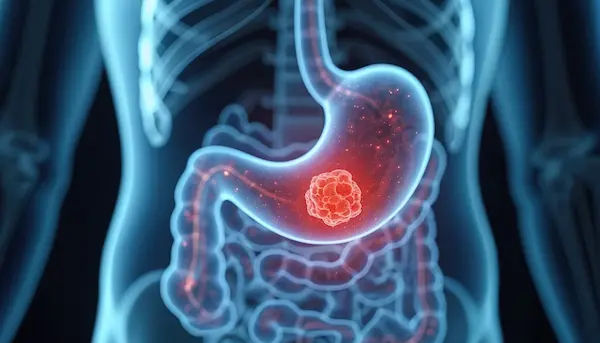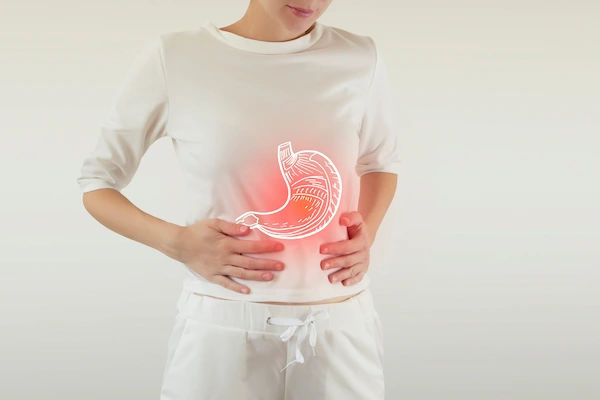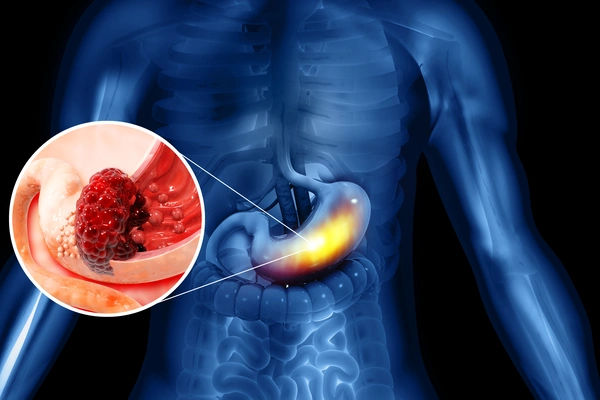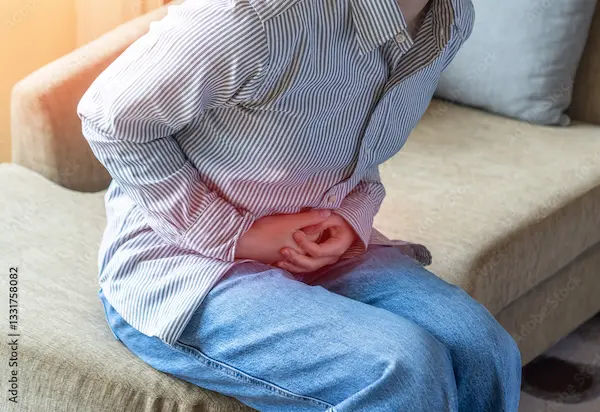Stomach Cancer: A Silent Threat & Your Essential Guide
Know about stomach cancer, why it's a silent killer, different types, causes, symptoms, who is at risk, diagnosis and treatment options and more.

Written by Dr. Dhankecha Mayank Dineshbhai
Reviewed by Dr. Rohinipriyanka Pondugula MBBS
Last updated on 13th Jan, 2026

Introduction
Stomach cancer, or gastric cancer, is often dubbed a "silent disease" for a sinister reason: its early signs are notoriously easy to mistake for common, less serious ailments like indigestion or heartburn. This subtle onset means it frequently evades detection until it has reached more advanced stages, making awareness our most powerful weapon. This guide cuts through the confusion, offering a clear, comprehensive look at this disease. We'll explore the vague early symptoms of stomach cancer you should never ignore, unpack the key risk factors, and walk through the modern diagnostic and treatment landscape.
What Exactly is Stomach Cancer?
Stomach cancer begins when healthy cells in the inner lining of the stomach undergo a genetic mutation, causing them to grow uncontrollably and form a tumour. This process usually happens slowly, over many years.
Understanding the Stomach's Anatomy
The stomach is a hollow, muscular organ that plays a key role in digestion. It's divided into five sections. The majority of stomach cancers start in the mucosa, the innermost lining of the main section (the body of the stomach).
Consult an Oncologist for Personalised Advice
The Different Types of Stomach Cancer
Types include:
- Adenocarcinoma: This is the most common type, accounting for about 90-95% of all cases. It develops from the glandular cells in the mucosa.
- Other Rare Types: These include gastrointestinal stromal tumours (GIST), lymphomas, and carcinoid tumours, which start in different types of cells within the stomach wall.
Why is it Called a "Silent Disease"? The Challenge of Early Detection
The moniker "silent disease" stems from the absence of specific symptoms in its initial phases. The early indicators, bloating, mild nausea, and heartburn, are so common that they are routinely dismissed. There is no standard, routine screening test for stomach cancer for the general population, unlike mammograms for breast cancer or colonoscopies for colon cancer. This combination of vague symptoms and lack of screening means the disease often progresses unnoticed, making awareness and vigilance critical, especially for those with known risk factors.
Don't Ignore These Signs: Symptoms of Stomach Cancer
Recognising the symptoms, even subtle ones, is crucial. If you experience any of the following persistently, it's essential to consult a doctor.
Early-Stage Symptoms (Often Vague)
- Persistent indigestion or heartburn
- A sense of bloating or fullness after eating small meals
- Mild, persistent nausea
- Loss of appetite
- Frequent stomach discomfort
Advanced-Stage Symptoms (More Specific)
- Unexplained weight loss
- Vomiting, sometimes with blood
- Blood in the stool (appearing black or tarry)
- Fatigue and weakness due to anaemia
- jaundice (yellowing of the skin and eyes)
- Difficulty swallowing
If symptoms persist beyond two weeks, consult a doctor online with Apollo24|7 for further evaluation. A professional can help determine if your symptoms warrant deeper investigation.
What Puts You at Risk? Key Stomach Cancer Risk Factors
Understanding what increases your risk can help you and your doctor make informed decisions about your health.
Unavoidable Risks (Age, Genetics, Blood Type)
- Age: Risk increases significantly after age 50.
- Gender: Men are more likely to develop stomach cancer than women.
- Genetics/Family History: Having a parent, child, or sibling with the disease increases risk. Certain inherited genetic syndromes, like Lynch syndrome and hereditary diffuse gastric cancer, also elevate risk.
- Blood Type: For unknown reasons, people with blood type A have a slightly higher associated risk.
Lifestyle & Environmental Risks (You Can Influence These)
- Diet: A diet high in smoked, pickled, salty, or processed foods and low in fresh fruits and vegetables is a major risk factor.
- Helicobacter pylori Infection: This common bacterium is a primary cause of stomach inflammation and ulcers, and is a major contributor to cancer development.
- Smoking and Heavy Alcohol Use: Both significantly increase risk.
- Obesity: Being overweight is linked to a higher risk of cancer in the upper part of the stomach.
How is Stomach Cancer Diagnosed? The Medical Journey
If symptoms of gastric cancer are present, a doctor will follow a step-by-step process to reach a diagnosis.
Initial Consultation and Physical Exam
The doctor will review your medical history, family history, and symptoms and perform a physical exam to check for any abdominal swelling or tenderness.
Key Diagnostic Tests: Endoscopy and Biopsy
This is the most critical step. An upper endoscopy involves passing a thin, flexible tube with a camera down the throat to examine the stomach lining. If any abnormal areas are seen, the doctor can take a small tissue sample (biopsy), which is then analysed in a lab for cancer cells. This is the only definitive way to diagnose stomach cancer.
Imaging Tests: CT Scan, PET Scan, and Barium Swallow
If cancer is confirmed, imaging tests are used to determine if and where it has spread (metastasised). This process, called staging, is vital for planning treatment.
Staging the Disease: What Does It Mean?
Staging describes the extent of the cancer. The stages range from 0 (very early, confined to the inner lining) to IV (advanced, spread to distant organs). The stomach cancer survival rate by stage is highest for earlier stages, underscoring the immense value of early detection.
Fighting Back: Modern Treatment Options for Gastric Cancer
Treatment is highly personalised and depends on the cancer's stage, location, and the patient's overall health. It often involves a multidisciplinary team of specialists.
Surgery (Gastrectomy)
The goal of surgery is to remove all of the cancer. This can involve removing part (subtotal gastrectomy) or all (total gastrectomy) of the stomach, along with nearby lymph nodes.
Chemotherapy and Radiation Therapy
Chemotherapy uses drugs to kill cancer cells, while radiation uses high-energy beams. They are often used before surgery (neoadjuvant therapy) to shrink a tumour or after (adjuvant therapy) to kill any remaining cancer cells.
Targeted Therapy and Immunotherapy
These newer treatments represent a paradigm shift. Targeted therapy attacks specific weaknesses within cancer cells (e.g., HER2 protein). Immunotherapy helps your own immune system recognise and destroy cancer cells more effectively. These are often used for advanced or metastatic stomach cancer.
Can Stomach Cancer Be Prevented?
While not all cases are preventable, you can significantly reduce your risk:
- Treat H. pylori Infections: If diagnosed, a course of antibiotics can eradicate this bacterium.
- Adopt a Healthy Diet: Eat a diet rich in fresh fruits and vegetables and limit processed, salty, and smoked meats.
- Quit Smoking and Limit Alcohol: Eliminating these major risk factors is hugely beneficial.
- Maintain a Healthy Weight.
- Know Your Family History: If you have a strong family history, discuss it with your doctor. They may recommend earlier or more frequent monitoring.
Living With and Beyond Stomach Cancer
A diagnosis can be life-altering. Treatment can lead to side effects like changes in eating habits, weight loss, and fatigue. Nutritional support is often critical. Many people live full lives after treatment, and support groups and counselling can be invaluable resources for patients and caregivers navigating the emotional and physical challenges.
Conclusion
Stomach cancer may begin silently, but it doesn't have to end tragically. Arm yourself with knowledge and listen to your body. Those persistent, niggling symptoms that don't resolve on their own are your body's way of signalling that something may be wrong. Ignoring them is the biggest risk. Proactive healthcare, open communication with your doctor, and awareness of your own risk profile are your strongest defenses. This guide serves as a starting point for understanding this complex disease. If any information here resonates with your own health experience, take the next step. If your condition does not improve after trying these methods, book a physical visit to a doctor with Apollo24|7 for a thorough evaluation. Your vigilance today could make all the difference for your health tomorrow.
Consult an Oncologist for Personalised Advice

Dr. Sanchayan Mandal
Medical Oncologist
17 Years • MBBS, DrNB( MEDICAL ONCOLOGY), DNB (RADIOTHERAPY),ECMO. PDCR. ASCO
Kolkata
MCR SUPER SPECIALITY POLY CLINIC & PATHOLOGY, Kolkata

Dr Gowshikk Rajkumar
Oncologist
10 Years • MBBS, DMRT, DNB in Radiation oncology
Bengaluru
Apollo Clinic, JP nagar, Bengaluru
Dr. B Shravanthi Reddy
Radiation Specialist Oncologist
8 Years • MBBS, DNB(Radiation Oncology)
Manikonda Jagir
Apollo Clinic, Manikonda, Manikonda Jagir
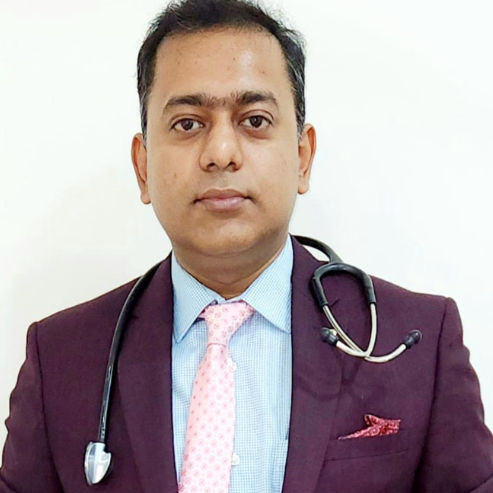
Dr.sanchayan Mandal
Medical Oncologist
17 Years • MBBS, DrNB( MEDICAL ONCOLOGY), DNB (RADIOTHERAPY),ECMO. PDCR. ASCO
Kolkata
Dr. Sanchayan Mandal Oncology Clinic, Kolkata

Dr Shaikat Gupta Director Surgical Onco
Surgical Oncologist
35 Years • MBBS (University Gold Medalist), MS, FRCSEd
Kolkata
Apollo Multispeciality Hospitals , Kolkata, Kolkata
(250+ Patients)
More articles from Stomach Cancer
Frequently Asked Questions
Is stomach cancer curable?
Yes, especially when detected at an early, localised stage. The chances of a cure are highest before the cancer has spread beyond the stomach. Even advanced cases can often be managed for extended periods with modern treatments.
